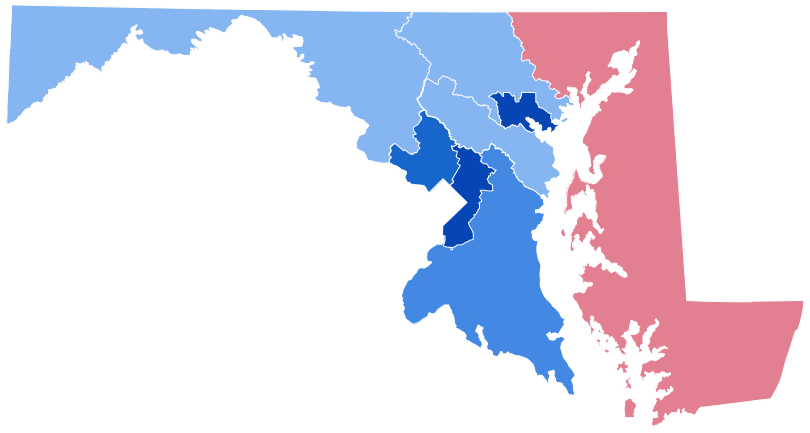When the Freedom Riders Came to Kent County

In the summer of 1961, the Freedom Riders made their mark on American society.
A mostly young and biracial group, they challenged racial segregation by traveling on interstate buses into the Deep South, where they carried out nonviolent protests against segregation in restaurants and stores. They endured arrests and beatings, and at least one bus was burned, but they succeeded in showing that nonviolent direct action could help end racism.
Inspired by the early riders, other groups of young people continued to visit segregated areas, working to bring about a change in racial attitudes. Early in 1962, it was Chestertown’s turn.
At the time, Kent County’s schools were segregated and would remain so for several more years. Washington College had at most three Black students, and many of their fellow students and faculty showed little inclination to treat them as equals. No Black person had ever served on the county commission, any town council, or the police force. The local newspaper routinely identified Black people by race, while the race of Whites went unreported.
Except for a few Black-owned businesses — such as Charlie Graves’ Uptown Club — Black customers were not welcomed or were restricted to takeout orders in local bars and restaurants. In the downtown movie theater, now the Garfield center, Black customers had a separate entrance and could sit only in the balcony.
On Feb. 3, 1962, Freedom Riders in two buses and about 10 cars came to Chestertown, hoping to make the town aware of its deeply ingrained racism. According to news reports, most of the protesters were northern college students, about half from New York City plus groups from Baltimore and Swarthmore College, near Philadelphia. Though most riders were White, there were Blacks as well.
They assembled at Bethel A.M.E. Church on College Avenue, where they were greeted by the Rev. Frederick Jones Sr., who had helped arrange for their visit. With food, a first-aid station, and training for the demonstrators, the church served as the headquarters for the operation. The riders were joined by locals, including Washington College students.
Protesters were instructed to speak softly and politely, and to enter and leave premises in an orderly manner. They were to let their group leaders do the talking and not to respond to curses or blows. The protesters also were given copies of the state trespassing laws, which business owners relied on to deny services. The marchers targeted several local businesses, including Bud’s Restaurant, the Riverside Restaurant, the Tally-Ho Diner, the Home Restaurant, Lombardo’s Pizza, and the Queen Anne’s Bowling Center.
According to the Washington College Elm — which gave the most detailed account of the day’s events in its Feb. 9, 1962, issue — the marchers expected that Bud’s, a bar and restaurant on upper High Street, would be the place most likely to give them trouble. They were right; Bud Hubbard, the owner, was openly hostile. The Elm reported that he invited some 300 local “friends” to the bar that day. The “friends” began arriving before noon, and Hubbard reportedly gave them plenty to drink.
Anticipating violence between marchers and White residents, the Maryland State Police sent 30 cars to town, including K-9 dogs and their handlers. Tyrone Johnson, a Black Chestertown native who was 20 at the time, said in an interview about 50 years later that he had seen local White men with baseball bats and other improvised weapons outside a High Street pool hall. He also remembered a White man he knew from Chestertown spitting in his face as the group of protesters marched down the street later in the day.
The first group of demonstrators arrived at Bud’s around 3 pm, where the owner read the trespassing law and asked them to leave. They did so, but some of the White men at the restaurant pursued them down High Street until they reached the railroad tracks in the vicinity of Vita Foods, then the largest local employer of Black people. There, local Black residents aided the peaceful marchers by chasing Hubbard’s “friends” away.
A second wave of Freedom Riders arrived at Bud’s about an hour later and were again denied entry to the restaurant. At that point, the marchers dispersed and returned to Bethel Church for a discussion of race relations that included several Washington College students. A couple of weeks later, the county’s chapter of the NAACP was founded.
Police made three arrests at the second visit to Bud’s, two Black men and one White — all locals. One Black man was convicted of disorderly conduct and carrying a concealed weapon — an ice pick — and sentenced to four months in jail. The other was convicted of assault and sentenced to 60 days in jail. The White man, found guilty of assaulting a police photographer, was fined $31.79. The arrests were the focus of coverage by the Kent County News and out-of-town newspapers such as the New York Times.
The reaction of the local White establishment was typified by a Kent News editorial calling the demonstrations “a publicity stunt.” The paper then ignored follow-up demonstrations, which lasted for several weeks. There are no recorded comments from then-Mayor Philip Wilmer or other elected officials. Elmer Hawkins, the Black principal of Garnet, the Black high school, widely seen as a community leader, left town for the weekend — no doubt a difficult choice for him.
The demonstrations didn’t go unnoticed. Aware of larger, more violent demonstrations in other Shore towns, influential locals embarked on a quiet campaign to persuade local businesses to desegregate. “We don’t want to be like Cambridge,” said one local attorney, referring to the violent demonstrations there in 1962.
Kent County’s progress was slow. In 1963, the first Black student graduated from Chestertown High School, but it was a couple of years more before any significant number began to attend. Full desegregation of the county schools didn’t take place until the early 1970s. Stam’s ice cream parlor finally allowed Black customers inside but removed its tables. Other businesses made their own adjustments. Blacks remained reluctant to patronize those that had been especially unwelcome before things began to change.
Lycurgus Henry, a young Kent County Black man who worked at Vita Foods and who played a prominent part in the demonstrations, died in 2023. In 2014, he looked back on his experience with the Freedom Riders and said, “Somebody had to die, somebody had to go to jail or be beaten up, to get where we are today.”
Although no one died in Chestertown, quite a few were roughed up, and far too many people elsewhere gave their lives during the long fight for racial equality in America. And no one today claims that race relations in Kent County are utopian. Still, it’s clear that the efforts of those such as Johnson and Henry who marched and demonstrated with the Freedom Riders in 1962 made a real difference.
Peter Heck is a Chestertown-based writer and editor, who spent 10 years at the Kent County News and three more with the Chestertown Spy. He is the author of 10 novels and co-author of four plays, a book reviewer for Asimov’s and Kirkus Reviews, and an incorrigible guitarist.
Common Sense for the Eastern Shore







